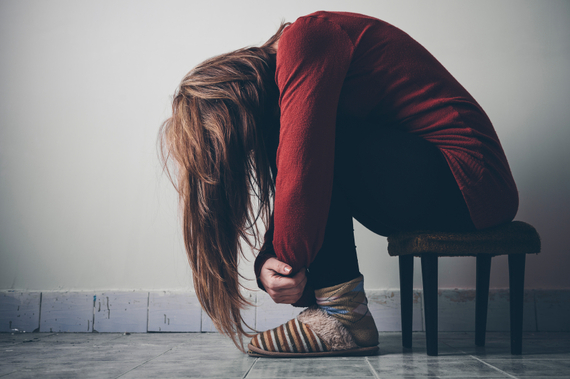Let's face it: Any way you look at it, detoxing is not an easy thing to do. Whether you're coming off cigarettes, sugar, alcohol or crack, who wants to do go through the intense cravings, the sweaty nights of lying awake, chills or the flu-like symptoms that can make you want to crawl up in a hole and die? I have experienced all of the above, and believe me I never want to go through that pain again.
In the early '90s when I got clean and sober, after having used for years, it took a while for the fog to lift. However, when it finally did, I had a profound realization that was crystal clear: I wanted to help other addicts and alcoholics get clean as well. After taking a series of required courses I got a job as a counselor in a local detox center at Brotman Hospital.
While working there over the course of five years, I met many clients whose lives had been downsized to a pill, a crack pipe or a bottle of Jack Daniels. Others who laid in the fetal position in their beds, swearing they would never drink again. There were our frequent flyers and some we'd never see again.
We averaged about one death a month and those were just the ones we knew about. Others would simply go MIA, and when an addict goes missing, it's usually not a good thing.
During that time one of the most common questions I was asked was, "What can I expect from my withdrawal?"
Here's what the National Institute on Drug Abuse (NIDA) says about it:
Withdrawal is the various symptoms that occur after long-term use of a drug is reduced or stopped abruptly. Length of withdrawal and symptoms vary with the type of drug. For example, physical symptoms of heroin withdrawal may include restlessness, muscle and bone pain, insomnia, diarrhea, vomiting, and cold flashes. These physical symptoms may last for several days, but the general depression that often accompanies heroin withdrawal may last for weeks. In many cases, withdrawal can be easily treated with medications to ease the symptoms, but treating withdrawal is not the same as treating addiction.
To take it a step further, one would have to consider the dosage, the length of time they used and the patients overall physical health. While I could give the client very broad strokes, in order for them to get their question answered, they would need to talk to the doctor or the nurse.
But what about all those people who tried hospitals and for whatever reason it didn't work for them? After doing a bit of research, I was surprised to discover that these days you can actually detox in the comfort of your own home. This service includes a board certified addiction specialist, an M.D., in-home nursing care, a counselor, case manager and other professionals who are available to you 24 hours a day. Impressed, I thought it was an idea worth exploring, so I reached out to Jose Hernandez, the founder of MD Home Detox, and asked him what made him want to start a business such as this.
"A lot of families, without realizing it, can sabotage the client's recovery," Jose said. "This is either because they don't know enough about addiction or they are in denial themselves. After working in the field for years, I realized there were addicts who had tried conventional methods only to come home and relapse once again. I wanted to create a safe environment for these individuals, using our clinical team to coach and educate the entire family along the way."
Jose went on to explain that the team first goes through the entire home removing all alcohol, drugs and anything that has the potential to trigger the client. With around the clock nurses, an on-call doctor Jose is able to offer his clients the only concierge detox of its kind.
Jose said, "I wanted to provide a confidential setting for celebrities, executives, congressman or people that simply want quality care and privacy who need to detox. This way they don't have to be worry about being discovered or found out by the media, which allows them the ability to do it in peace."
Whether a client decides to detox in a hospital or at home, physically sobriety is only the first step. It's always recommended for the individual to develop an after care plan that will help in maintaining long-term recovery.
Speaking from my own experience, when I was getting sober some 22 years ago, I was so broken that taking someone else's direction might be the only reason why I'm still around today.
Below are two lists of typical withdrawal symptoms when getting off heavy drug use:
PHYSICAL SYMPTOMS
•Vomiting
•Diarrhea
•Heart palpitations
•Nausea
•Headaches
•Insomnia
•Muscle and bone pain
•Tremors
•Weight loss
•Cold flashes
•Sweating
PSYCHOLOGICAL SYMPTOMS
•Insomnia
•Cravings
•Anxiety
•Irritability
•Paranoia
•Poor concentration
•Social fear
•Depression
SEVERE SYMPTOMS OFTEN RELATED TO ALCOHOL OR TRANQUILIZERS
•Hallucinations
•Seizures
•Delirium tremens
•Strokes
•Heart Attacks
Correction: A previous version of this post identified Jose Gonzalez as founder of MD Home Detox. Jose Hernandez is founder is MD Home Detox.
---
Need help with substance abuse or mental health issues? In the U.S., call 800-662-HELP (4357) for the SAMHSA National Helpline.
